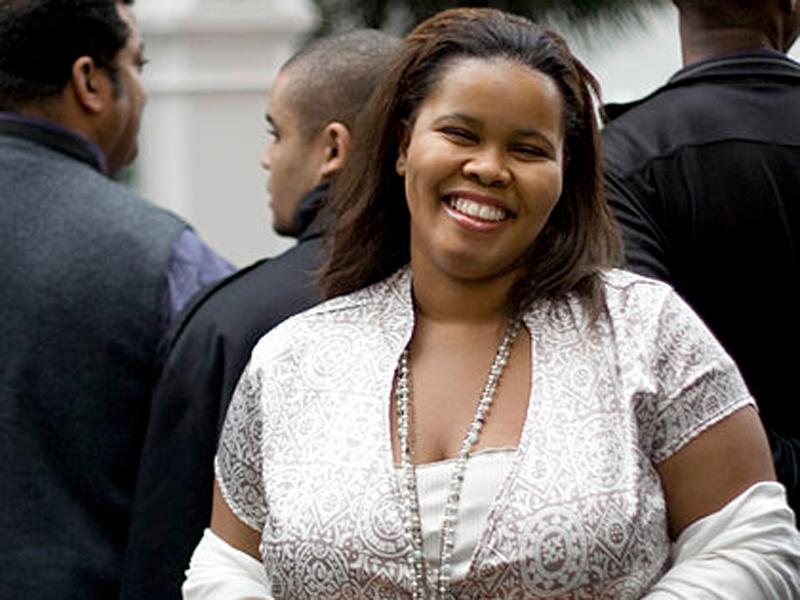Race divides South African politics
Lindiwe Mazibuko, the Democratic Alliance’s new leader in Parliament, hopes to change race politics in South Africa. (Photo by Dawikicommonsaccount via Wikimedia Commons, cc-by-sa.)
In post-apartheid South Africa, political party affiliation still falls mostly along racial lines.
The Democratic Alliance is supported primarily by white and mixed-race voters, while most black voters vote for the ANC, the ruling African National Congress — the party of Nelson Mandela. Recently, though, the Democratic Alliance has made efforts to attract black voters.
The party's leader, Helen Zille, is white. Its largest voting bloc is white and its headquarters is in the western cape, South Africa's whitest province.
Lindiwe Mazibuko hopes to change that.
"Only one political party in South Africa is the party of the future. That party is the DA," the 31-year-old said at a political rally last year.
In October, she became the party's new leader in Parliament, making her the highest ranking black politician in the party's history.
Political analyst Eusebius Mckaiser said her sudden appearance shook up the political scene because most South Africans are used to seeing black politicians side with the ANC, the party that led the struggle against apartheid. Mckaiser said many view the ANC as the real hope for black South Africans.
During her rise to power, Mazibuko held rallies in black townships, traditional ANC strongholds. She challenged the ANC's monopoly on the black vote and strongly criticized their politics.
"This is the kind of politics that uses the scars of apartheid to hold the people of this country to ransom, and tells them, 'You can only vote for one country. We own your vote.' It's not true. Nobody owns anyone's vote in South Africa," she said.
Political opponents have tried to discredit Mazibuko, saying that she is simply a black figurehead for a white party. At a news conference last year, Julius Malema, the controversial former president of the ANC Youth League, called her a "tea girl" for Zille, saying she "must remain there in the kitchen for making the tea for the Madame."
Mazibuko isn't fazed by the criticism.
Mazibuko and DA officials maintain her selection was based on her own merits, but so far, Mazibuko hasn't won over many black voters.
The Democratic Alliance earned just 24 percent of the national vote in the last elections, and only 5 percent of the black vote. Political experts say many voters have trouble relating to Mazibuko, who is highly educated, grew up in a free South Africa, and didn't experience the struggle against apartheid.
In an attempt to reach university students, the Democratic Alliance also put out a controversial poster, which shows a white man and black women naked from the waist up in an intimate embrace. It says, "In our future, you wouldn't look twice."
Reagen Allen, a spokesperson for the DA Youth League, said the poster reflects the DA's stance on race.
"We believe in an open opportunity society, where all people are free, equal, and secure," he said. "The younger generation, to a large extent, they don't see race anymore. They see a human being."
But a lot of young people disagree. A University of Cape Town student said it's ridiculous to suggest young South Africans wouldn't look twice at an interracial couple, or that they no longer see race.
"In this country, even though we are a rainbow nation, there are still stigmas and stereotypes of black and white," she said.
Another student said maybe in the future race won't matter, but for now, it matters a lot.
In many ways, the DA's quest for political power is a test of their assertion that race shouldn't matter. But if their slow progress against the ANC is any indication, most South Africans, and especially most black South Africans, aren't buying it.
